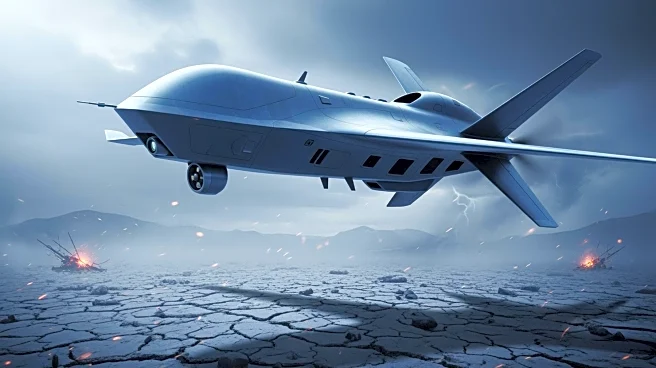What's Happening?
The Russian military has introduced a new unit, Rubicon, which has significantly altered the dynamics of drone warfare in the ongoing conflict with Ukraine. This unit, under the leadership of Russian Defense
Minister Andrey Belousov, has been deploying advanced drones to target Ukrainian logistics and drone operators, giving Russian forces a strategic advantage. Rubicon's operations have been reported across various battlefields, disrupting Ukrainian supply lines and communications. The unit's use of fiber-optic drones, which are resistant to jamming, has been particularly impactful. This development marks a shift in Russian military tactics, emphasizing adaptability and technological innovation.
Why It's Important?
The introduction of Rubicon represents a critical evolution in modern warfare, where drones play a pivotal role in military strategy. For Ukraine, this development poses a significant challenge, as it undermines their previous advantage in drone operations. The effectiveness of Rubicon's tactics could influence future military engagements and the global arms race in drone technology. Additionally, the success of such units may encourage other nations to invest in similar capabilities, potentially altering the balance of power in international conflicts.
What's Next?
As the conflict continues, Ukraine will need to develop countermeasures to mitigate the impact of Rubicon's operations. This could involve enhancing their own drone capabilities or developing new electronic warfare strategies. The international community may also respond by reassessing military aid and support to Ukraine. Furthermore, the effectiveness of Rubicon could lead to increased investment in drone technology by other nations, potentially escalating the arms race in unmanned systems.










